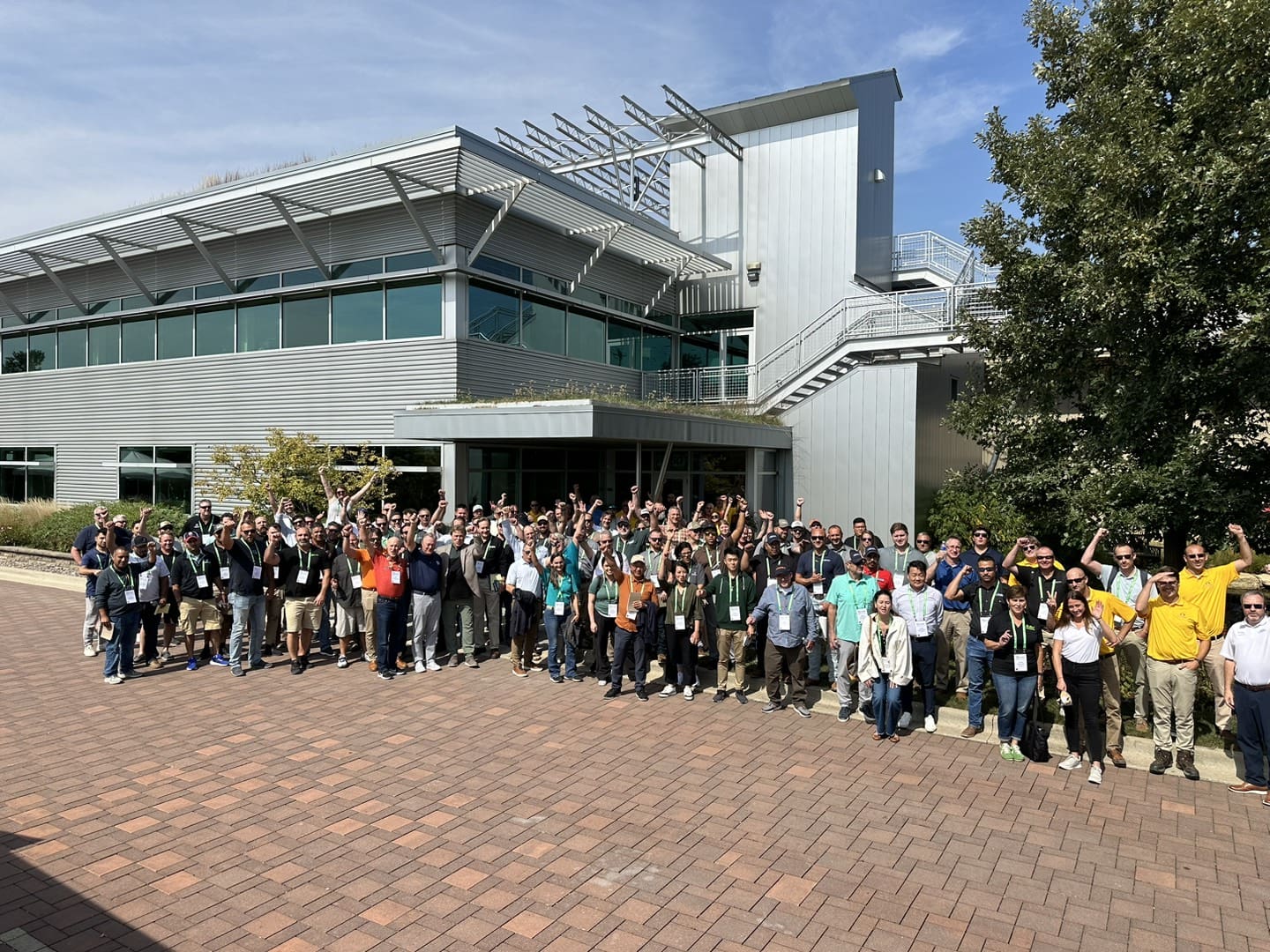
For Sebert Landscape, sustainability and success go hand in hand. While visiting the fifth-largest commercial landscape contractor in the Midwest, attendees were able to gather multiple takeaways touring their facilities during the NALP Field Trip on Sept. 17-18.
Based in Bartlett, Illinois, Sebert Landscape was founded in 1985. The company specializes in commercial landscape maintenance, installation, enhancements and snow removal. This year, the business is on track to earn $60-65 million in annual revenue.
Host Marty Grunder with The Grow Group walked attendees through Sebert’s different sustainability efforts, how they retain their culture despite their size and how they drive sales.
Seek Sustainability
Founder Jeff Sebert has always been passionate about sustainability.
“We have an obligation to live up to the name of the green industry,” Sebert says.
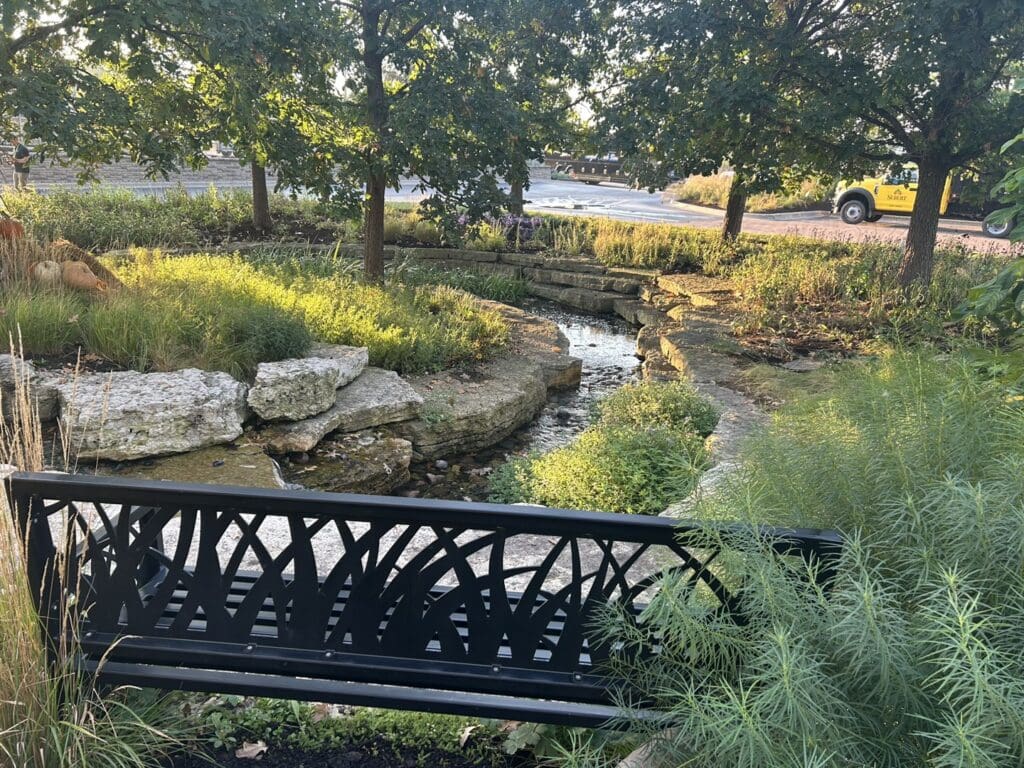
In 2009, he started building their LEED Gold-certified building. He says many told him he was crazy to build a project during the recession, but he felt it was the right thing to do.
“We were repaying the community by building this building,” Sebert says. “We kept others employed.”
The 30,000-square-foot corporate office is twice the size of their old facilities but uses the same amount of electricity and natural gas. It features solar panels, a green roof, permeable pavers, an endless stream that captures rainwater from the building and recycles it, and windows that help bring in natural light to the office.
It was the first building in Bartlett that submitted for and received LEED certification. Sebert says they applied for and received grants for their green roof and solar panels.
Aside from their building, the company also utilizes battery-powered handheld equipment. Three of their branches have only battery-powered fleets.
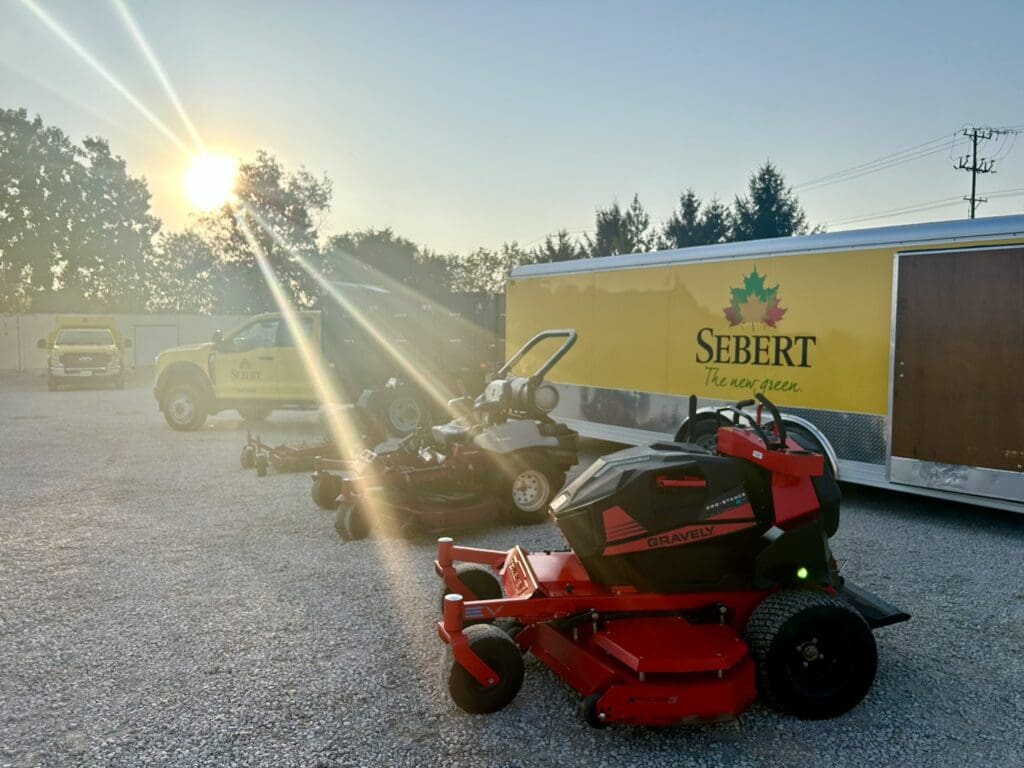
In 2021, they started testing out EV mowers and they now have 18 crews operating fully EV. Sebert says both their customers and their employees appreciate the change. They are also experimenting with autonomous mowers. During the facility tour, they shared how they are outfitting their yard and trailers to effectively charge their mowers and handheld equipment overnight.
The trailers feature three lights outside, so they can quickly identify any charging issues. The green light indicates the mowers are charging and the blue light shows the handheld equipment is charging. The red light alerts the team something is not charging so they can check what is not properly plugged in.
Sebert also believes that native landscapes should be more prevalent. Their sister company, Bluestem Ecological Services, builds, restores and maintains native ecosystems, increasing the amount of native landscapes in the region. Both companies refer leads to one another. He says the company is separate because it calls for a different skill set.
Foster a Family Culture
Sebert Landscape has 750 team members across seven branch locations and their culture centers around family and family practices. Many of Sebert’s employees have brought their children to work at the company as well.
Sebert says that they host a lot of company events and it’s important to enjoy working with co-workers.
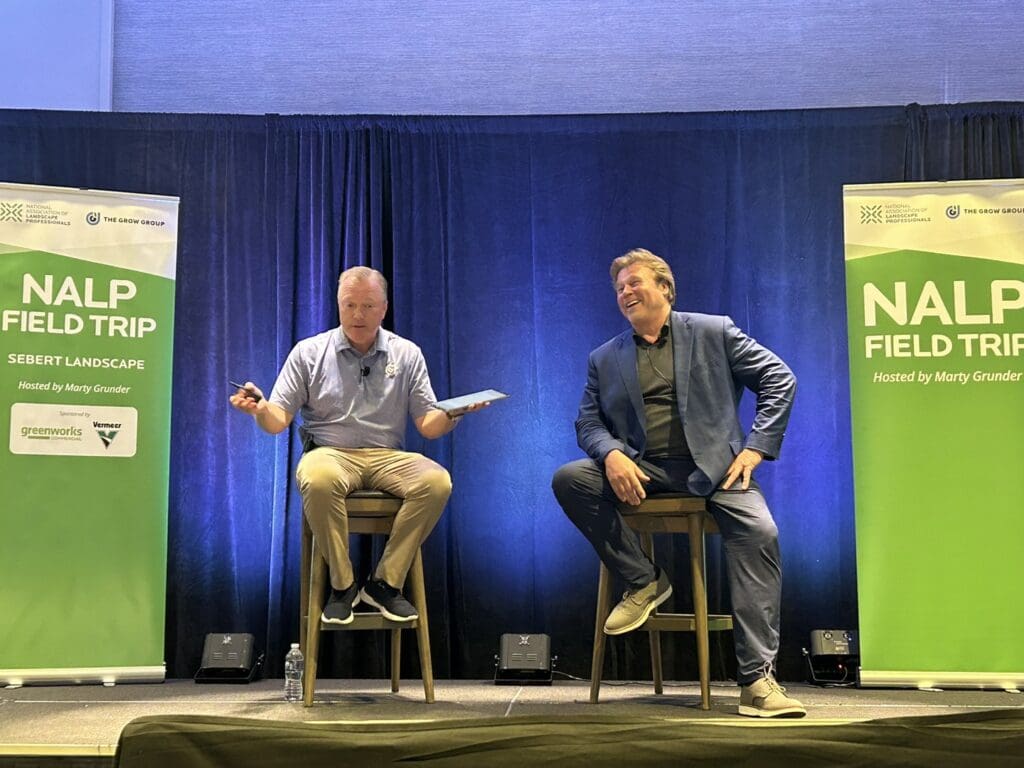
When designing their new facility, Sebert considered what feature would help bring team members together. He decided to add a kitchen. Now every Wednesday, the team gathers in the kitchen to eat lunch together.
Sebert admits that maintaining their culture across the different locations is one of their most challenging tasks, but having weekly visits to the branches helps encourage consistency.
The company makes a point to recognize employees in a number of ways, including giving out growth and improvement and top earners awards. Employees receive an award with a bison statue. Sebert says that bison require minimal maintenance, are self-sufficient and will tolerate all elements, which is why they are a good mascot for the team.
They also send out a monthly internal newsletter where they recognize employees and share positive feedback from clients.
Sebert says that the fact they are privately owned instead of private equity also resonates with new hires because they know they will be part of the family and not a number. He says that offering opportunities to your people also helps continue your culture.
Part of the family atmosphere comes down to the focus on teamwork. Sebert say you can’t put the success of the company all on one department. It’s a team effort.
Sales Strategies
Sebert Landscape’s business development team, in particular, understands the value of working together. While each business developer has their own territory, they meet weekly to discuss their wins and struggles and share what tactics are working and which are not. There are also monthly sales meetings and an annual sales meeting that loops in account managers and branch managers.
Sebert Landscape’s sales approach is very personable. Sebert encourages his sales team to get out of their comfort zone and go meet with clients. Quite often, these leads appreciate the fact they are doing business the old-fashioned way like personally delivering gift baskets.
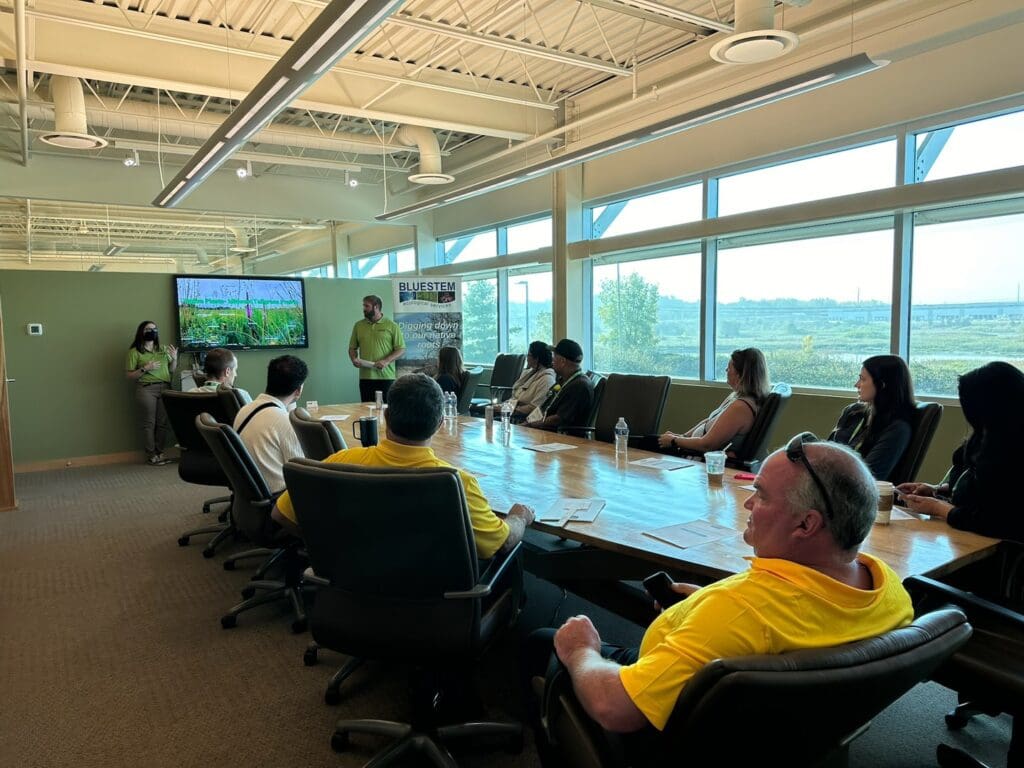
The business development team frequently brings in new leads through cold calling, walk-ins and personal emails. They are also required to be members of at least two associations and attend relevant events.
The company actively gives back via donations and volunteering efforts with the community and their clients. Sebert Landscape also hosts various building tours at their headquarters, which helps to convey to prospects they are professional and have the capability to meet their needs.
The sales team makes a point to learn about the client’s business and what their pain points are. Sebert says this indicates their earnest desire to work with clients. The business developers have a yearly calendar of touchpoints so they can stay consistently in front of prospects as well as their top 20 clients.
Dig Into Data
Sebert credits part of their success to their open-book management, which increases understanding and accuracy amongst the team. Their confidence and trust in the numbers gives them a road map for the future and shows the performance of each branch.
One of Sebert’s focuses moving forward is more data analytics as he wants to create increased visibility within his company. He hopes to make it possible to measure and decipher this information and get it to the relevant parties so they can make the necessary adjustments.
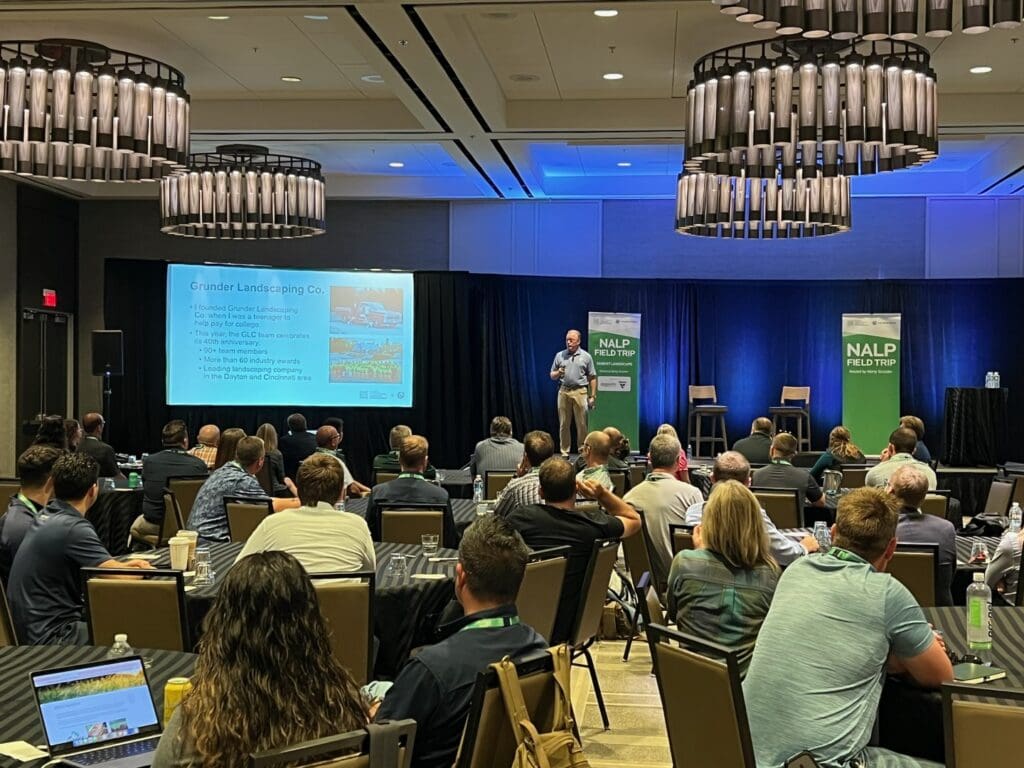
Currently, the company has centralized their HR data by becoming almost completely paperless. Applicants scan a QR code and fill out the necessary sections to proceed to the next step of the onboarding process. This has helped their overall efficiency, accuracy, consistency and sustainability.
They are also gathering safety-related data by pushing out brief safety text messages twice a week to team members through Vista Safety Consulting.
Employees answer the two-question quiz by clicking on the link in the text message. Sebert is then able to see the metrics on who answered, as well as what their responses were, so they know who to follow up with and if a topic needs more training.
Sebert says the future of the industry is analytics. He is looking to fill their data analyst position in the next six months.
Think Outside of the Box
Sebert encourages thinking outside of the box when it comes to all aspects of the business. He says you shouldn’t be confined by what the industry as a whole is doing. Consider what you can do differently.
For instance, he is looking at the usage of drones to identify and treat invasive plants with minimal chemicals. This technology is already being used in the agriculture industry.
The company also empowers employees to think outside of the box and make safety suggestions through their Safe Acts program. Team members can make suggestions on how to be safer and if their ideas are successful, they are rewarded with $200.
Sebert has also been successful by looking outside of the industry when hiring some of their sales team. These individuals have been able to approach prospects with fresh ideas and new tactics.
These are just some of the themes discussed during Field Trip.
Thank you to our partners, Greenworks Commercial and Vermeer, for helping support this event.

